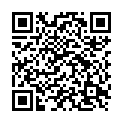|
|
|
| Module code: MTM.EUV |
|
2V (2 hours per week) |
|
2 |
| Semester: according to optional course list |
| Mandatory course: no |
Language of instruction:
German |
Assessment:
Written exam
[updated 01.10.2020]
|
MTM.EUV Mechatronics, Master, ASPO 01.04.2020
, optional course
MST.EUV Mechatronics and Sensor Technology, Master, ASPO 01.04.2016
, optional course
MST.EUV Mechatronics and Sensor Technology, Master, ASPO 01.10.2011
, semester 9, optional course
|
30 class hours (= 22.5 clock hours) over a 15-week period.
The total student study time is 60 hours (equivalent to 2 ECTS credits).
There are therefore 37.5 hours available for class preparation and follow-up work and exam preparation.
|
Recommended prerequisites (modules):
None.
|
Recommended as prerequisite for:
|
Module coordinator:
Prof. Dr. Martin Löffler-Mang |
Lecturer: Prof. Dr. Martin Löffler-Mang
[updated 30.01.2019]
|
Learning outcomes:
After successfully completing this module, students will be familiar with the practical implementation of European product directives (especially the machinery directive) in the European Economic Area. They will be able to carry out conformity assessment procedures including the CE marking of products. In addition, students will be familiar with the legal consequences of putting defective products on the market or exhibiting them, as well as the legal consequences of defective products that have caused personal injury or damage to property.
[updated 01.10.2020]
|
Module content:
1. EU law (basic principles)
2. Implementation of European product directives into national law
3. European Economic Area
4. Practical implementation of the EU Machinery Directive
- Basic requirements of the EU Machinery Directive
- Essential health and safety requirements
- Harmonized standards and presumption of conformity
- Requirements with applicable guidelines
- Risk analysis
- Technical documentation
- Operating instructions
- Conformity assessment procedures
- Declaration of conformity / incorporation
- CE marking
5. Legal consequences
[updated 01.10.2020]
|
Teaching methods/Media:
Lecture
[updated 01.10.2020]
|
Recommended or required reading:
(Maschinenrichtlinie) Machinery Directive
(Niederspannungsrichtlinie) Low Voltage Directive
(EMV-Richtlinie) EMC Directive
(Geräte- und Produktsicherheitsgesetz mit Verordnungen) Equipment and Product Safety Act with regulations
[updated 01.10.2020]
|

